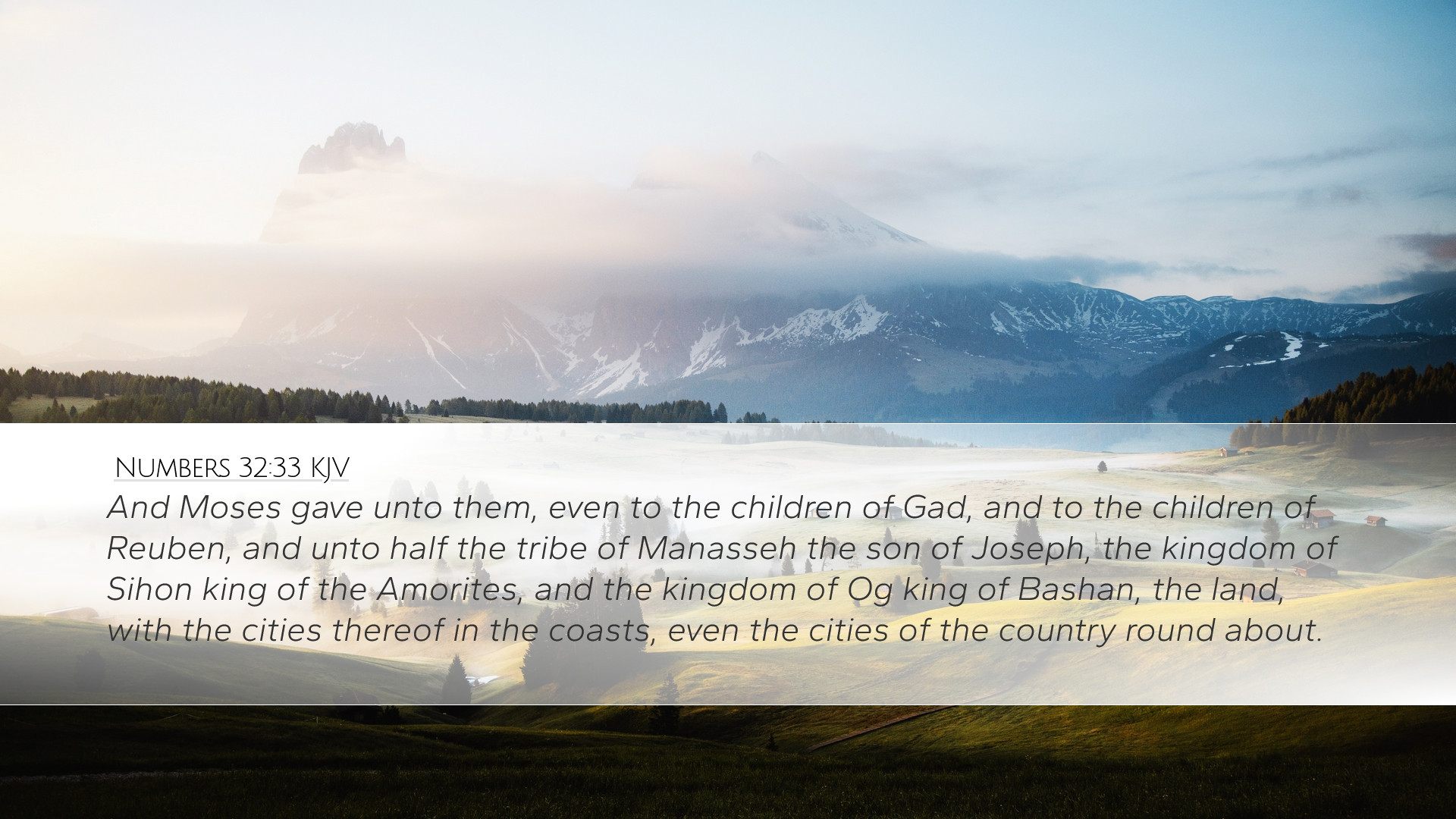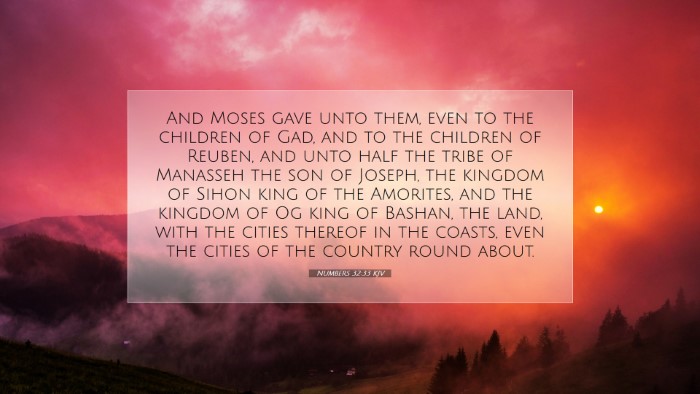Commentary on Numbers 32:33
The verse states: "And Moses gave unto them, even to the children of Gad, and to the children of Reuben, and to half the tribe of Manasseh, the son of Joseph, the kingdom of Sihon and the kingdom of Og, which was on the two sides Jordan, the land of the cities thereof, and the country of the cities thereof."
Contextual Introduction
This passage occurs in the midst of Israel's journey to the Promised Land. The tribes of Gad, Reuben, and the half-tribe of Manasseh expressed their desire to settle in the land of Gilead, which was suitable for their livestock. Their request, while practical, raised questions about their commitment to the collective journey of Israel into Canaan.
Historical Background
As Israel was poised to enter Canaan, significant decisions had to be made regarding land allocation. The tribes mentioned were positioned on the eastern side of the Jordan River, a land previously conquered from the kings Sihon and Og. This land, though fertile and good for grazing, was not the land of promise (Canaan) which God had directed them to.
Theological Insights
This verse illustrates several theological themes that can be discerned through the lenses of various commentaries:
- Covenant and Obedience: The tribes of Gad and Reuben's request can be interpreted in the context of their loyalty to God’s covenant with Israel. Their choice to settle outside of Canaan raises questions about commitment to divine promises.
- Divine Provision: The referential gift of land signifies God's provision. God is not only a promise-maker but also a promise-keeper, providing for Israel in a tangible manner through the victories over Sihon and Og.
- Leadership and Responsibility: Moses' role as a leader is highlighted here. He must balance the desires of the people with the will of God, showcasing the burdens of leadership. He grants their request but ensures they do not shirk their responsibilities as they enter into the Promised Land.
Insights from Commentaries
Matthew Henry highlights the implications of these tribes settling outside the Promised Land. He argues that while they chose their own land, they were still responsible for participating in the conquest of Canaan. This serves as a metaphor for spiritual engagement; claiming Christian blessings involves both acceptance and responsibility to God’s mission.
Albert Barnes notes the significance of the land granted to these tribes. He emphasizes that their pastoral life might have led to comfort and complacency, which could detract from their momentum toward spiritual fulfillment and growth. Barness suggests that in longing for easier pastoral tasks, they risked their covenant being called into question.
Adam Clarke expounds on Moses’ response and the broader implications for leadership. Clarke underscores the necessity of accountability when sharing God's bounty. He implies that although they received their land, they needed to harness their influence to ensure strong participation in the community of Israel, reinforcing the idea that individualism must not negate the collective journey.
Practical Applications
The modern church can glean from this passage in various applicable ways:
- Commitment to Mission: Just as the tribes had to combine their personal desires with communal responsibilities, today’s Christians must balance personal ambitions with the collective mission of the church. Every relationship with God has communal aspects.
- Leadership Dynamics: The burdens of leadership found in Moses' role highlight the importance of wise community decisions. Pastors and leaders are called to lead their congregations through difficult discussions and decisions with wisdom and grace.
- Heart Checks: Reflecting on one's own spiritual journey is vital. Are there areas of comfort that distract from God’s primary calling? Each believer is invited to consider if they too, like Gad and Reuben, are settling for less than God's best.
Conclusion
Numbers 32:33 serves as a critical reminder of both the blessings of God’s provision and the responsibilities those blessings entail. It encourages pastors, students, theologians, and scholars to reflect on God’s leading in the broader communal context. The desire for personal comfort must be reconciled with a commitment to the call of God within the community of believers.


